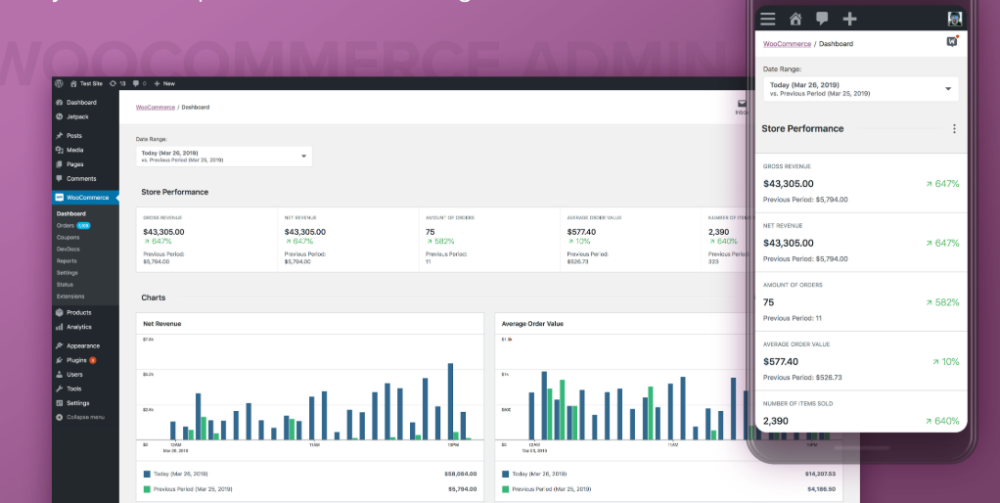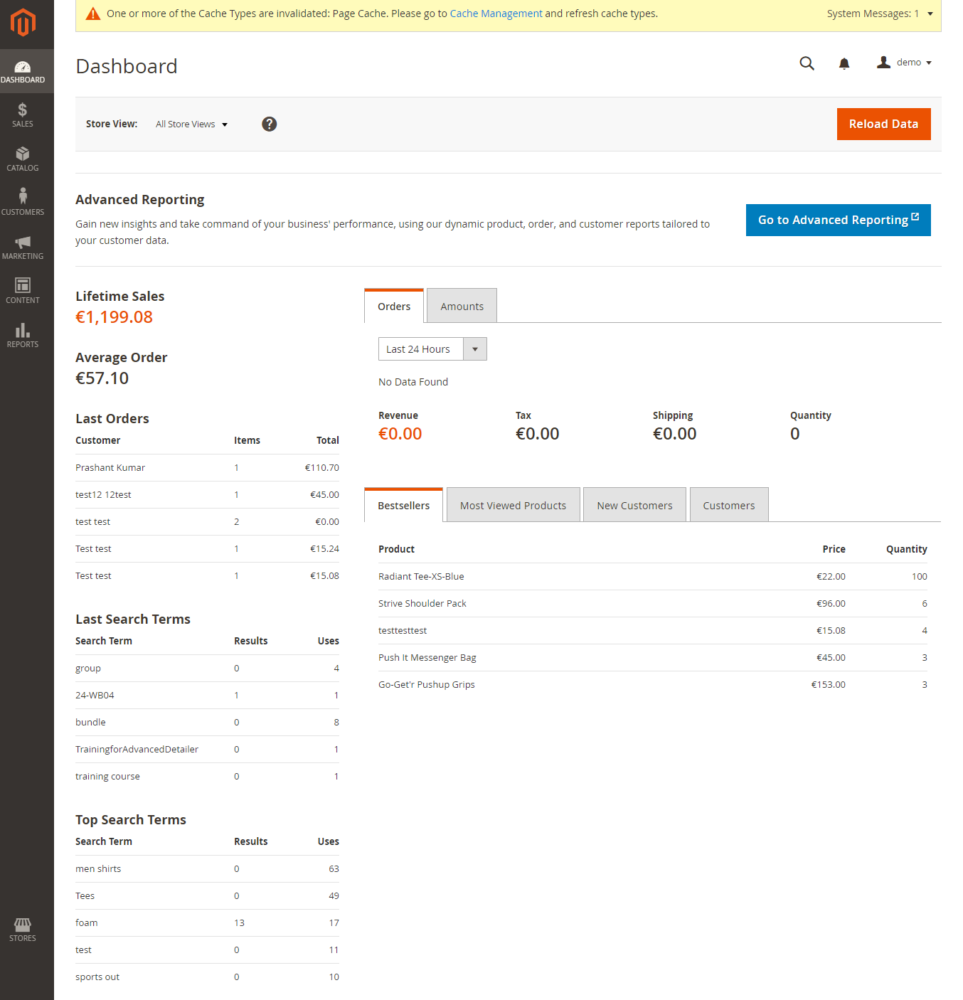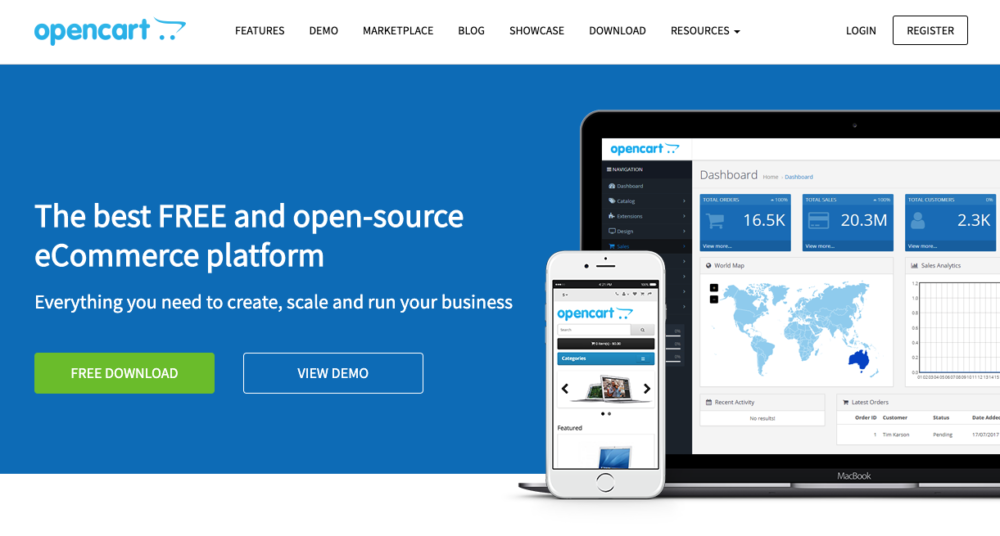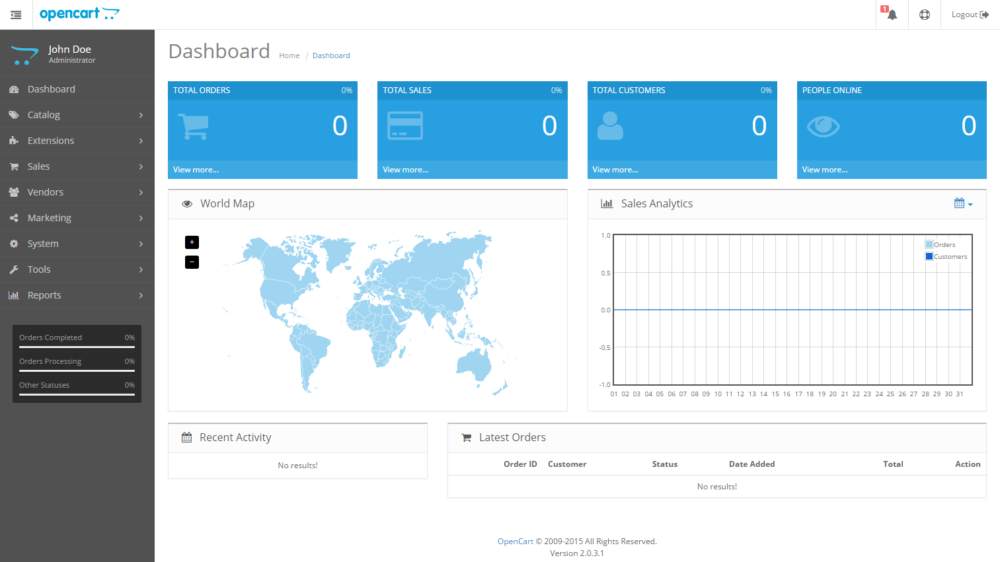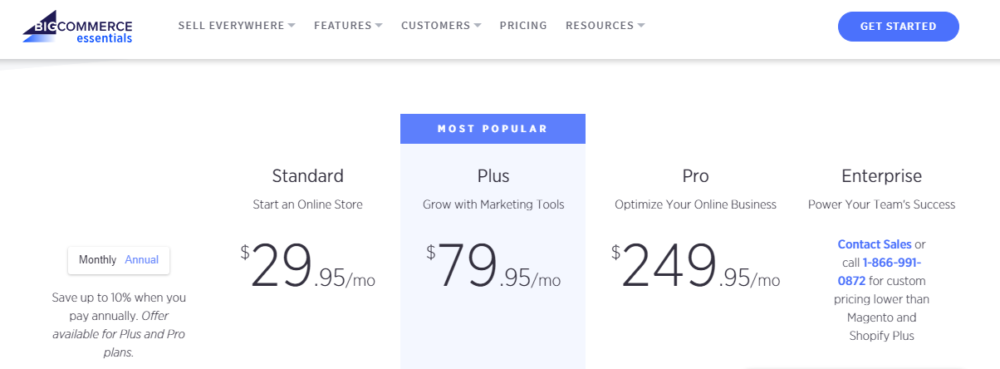Are you launching an online store any time soon and can’t figure out the best suitable eCommerce platform for your project? If so, I bet you’re thinking Shopify is the best option out there — but there are plenty of Shopify competitors to choose from.
Every eCommerce entrepreneur has been through this phase, and it has been an equally difficult decision for all of them.
Choosing an eCommerce platform is a long-term commitment, and you can’t just experiment with random selections. One has to be very confident about this decision to come up with a stable eCommerce venture.
No matter if you are just starting out your eCommerce venture, or are already using a platform and considering other options, I can bet that Shopify must be a front runner.
Money Note: If an extra $1K–$5K/month would change your 2026 goals (debt, savings, travel, freedom), you’ll want to catch this: free live workshop from a freelancer who’s earned $4M+ online. No fluff. No gimmicks. A real roadmap. 👉 Watch the training or save your seat here »
Shouldn’t it be? After all, Shopify is the most preferred SaaS-based eCommerce platform on the market, and it’s also the second most popular eCommerce platform from all categories.
In this article we will take an in depth look at Shopify as well as explore the top Shopify competitors.
Let’s check out if Shopify is the ultimate option, or if there are better options for you.
What is Shopify?
Shopify is a cloud-based online store builder, also called a SaaS (software as a service) eCommerce platform. It is one of the easiest, quickest, and most hassle-free alternatives to creating an eCommerce website from scratch. If you choose Shopify to build your online store, you would get the following benefits:
- A readymade eCommerce store with cloud hosting
- Access to hundreds of themes and thousands of plugins
- Hundreds of templates for selling any type of products
- Tons of great Shopify apps to choose from
- Built-in payment processors and payment gateways
- Compatibility with popular third-party tools and integrations
Who should use Shopify?
Shopify delivers its software as a service over the cloud. It means you do not need to deal with the web-hosting or complications of installing a source code, or the web-server.
All one has to do is open any web browser, sign-up for a plan and a domain name, log-in to a web-based dashboard, and set up the web store on the go using a GUI. They also provide a 14-day free trial.

That also means you can manage your site from pretty much anywhere, as long as you have a computer and internet connection.
Basically, Shopify brings you the whole kit and caboodle from the beginning for building an online store. So you should consider using Shopify if your situation matches with any of the following circumstances:
- You have a unique business idea but cannot develop your website by yourself for any reason.
- You find it expensive to pay upfront and out-source the store development project to vendors.
- You can out-source the store project, but cannot hire a devoted team for website management.
- You want to start selling as early as possible for competitive or any random reason.
- You don’t want to handle anything technical, and just want to focus on business development.
- You want resolutions to all popular third-party integrations and business tools.
- You can afford to pay a small recurring fee for as long as your web store is live and running.
- You trust a brand that is currently trusted by 800,000 web-stores, in over 175 countries.
As you see, there are many scenarios where Shopify could be the right platform for you, but there will always be positives and negatives to go with.
Pros and cons of using Shopify
Like every software solution, Shopify can be suitable for many, while it is not such a pleasant experience for some eCommerce entrepreneurs. To help you identify and analyze if Shopify or one of the Shopify competitors is best for you, I have gathered both pros and cons in the following section:
Pros of Shopify’s eCommerce platform
- Ease of use: No technical skills required to start an eCommerce business. It’s basically like managing your email account with all those user-friendly GUI. From setting up your website for the first time, to managing your eCommerce store and its orders, customers, and products, everything is a simple GUI.
- Fairly customizable: While it’s not the world’s most customizable eCommerce platform, Shopify is still one of the most customizable SaaS-based eCommerce platforms. You get access to hundreds of ready-made templates, themes, and plugins, which you can install to customize your web-store in minutes. The community is huge and backed by many third-party Shopify plugin developers.
- Highly Scalable: Shopify is one of the few SaaS solutions that offer the biggest scalability options. They are backed by top cloud services. One can simply start with a smaller plan and upgrade to a bigger plan as the business grows. They have plans for small business to big enterprises where they take care of website uptime, loading speed, performance, and everything scalable, accordingly. In fact, names like Red Bull, Rebecca Minkoff, and Nestlé use Shopify to power their web stores.
Cons of Shopify’s eCommerce platform
- Pricing dilemma: If something is so great and flexible, it doesn’t mean it is affordable too. While Shopify does offer cheaper plans such as Shopify Lite for $9.99/month, only its mid-level and higher-level plans come with effective features. Comparatively, Shopify competitors offer better features in their cheaper plans.
- Overhead fee: While I don’t have an issue with Shopify charging monthly or weekly recurring license fees, I feel there is quite an inflexibility for regulating the overhead costs. For example, Shopify offers Shopify Payments solution, which is powered by Stripe. We can use the same to accept all kinds of popular payment methods and Shopify charges 2.9% + 30 cents on every transaction.However, if one does not want to use Shopify Payment, then using a third party payment option will incur with an insane overhead fee. Shopify charges an additional 2.0% transaction fee on each transaction, besides the basic above given charges.So if you don’t use their inbuilt payment solution, you would pay some hefty shares to Shopify on each transaction.
- Impossible migration: In any case, if you decide to let Shopify go and migrate to another platform, Shopify makes it quite difficult. You cannot migrate your Shopify web store to any other platform using any automation. The best you can do is to export your product information for future references. You have to migrate it all manually.
Top 4 Shopify competitors on the market today
If any of the cons of Shopify make you feel uncomfortable about it, worry not, because I have also picked up some of the best Shopify competitors in this article.
Even though everyone is talking about Shopify these days, there are similar solutions, which are also popular among a large populace of web store owners.
If we check the data from Builtwith for Top 1 Million Sites, the following are the top eCommerce platforms on the market:
Please note: This is not an official market share data. It’s based on the latest readings from the top 1 million websites on the internet. The actual market share data may vary.
That means, Shopify is not the only option you have. In fact, WooCommerce is the first choice for most entrepreneurs. So, the top 5 Shopify competitors in our list today are as following:
- WooCommerce
- Magento
- OpenCart
- BigCommerce
- PrestaShop
We will compare each of the platforms with Shopify based on the following aspects:

- User-friendliness
- Number of users
- Built-in features
- Customer support
- Price/Fees
Without further ado, let’s jump in to the top Shopify competitors list!
#1: WooCommerce
WooCommerce is the most popular eCommerce platform to date. It is the most distinct in our list for two major reasons:
- It is not an independent eCommerce platform but simply a WordPress Plugin
- Unlike Shopify, WooCommerce is a self-hosted solution
WooCommerce is an open-source eCommerce plugin for WordPress and allows the website owner to choose any web hosting solution from the market.
Though there are some dedicated cloud solutions, which come installed with WooCommerce, it is still referred to as self-hosted. You have the option to choose from hosted and self-hosted options as well.
User-friendliness
WooCommerce is probably the simplest eCommerce platform in all categories. All you have to do is install the plugin on your WordPress website, and it will become a readymade eCommerce site from merely a CMS.
The back-end is as simple as WordPress’s dashboard. Once you install the source code, you just need to follow a graphical user interface to setup your site, upload products, and manage the orders.
Number of users
It’s the most popular eCommerce platform on the planet. You can’t question the number of users or how big the WordPress and WooCommerce alternatives are.
According to Builtwith, over 3,317,205 live websites are currently using WooCommerce. In fact, 6.74% of the top 1 million websites are built on WooCommerce.
Built-in features
A WooCommerce web store perfectly combines, not just the features from the plugin itself, but it also inherits all the features from its base–WordPress.
So what do you get when you choose WooCommerce to power your web store? You get the most popular CMS (WordPress) and the most popular eCommerce platform.
The platform comes with most of the features built-in. Moreover, its open-source nature makes the community vast enough to gain any additional feature as a ready-made plugin.

Think of any new feature, there is more likely a chance you will find a free or premium WooCommerce plugin for it.
Customer support
This is where you might find WooCommerce less effective as compared to Shopify.
While WooCommerce asks users to submit a ticket for any support request, they offer dedicated support only for the premium extensions sold on WooCommerce.com, and encourage users to go through the documentation to get help for most of the issues.
Price/Fees
Both WordPress and WooCommerce plugins are free. You can download both for free from the official websites. There are both free and premium WooCommerce extensions available on the market.
Things you have to pay for by yourself may include Web hosting, Premium Extensions, and Payment Gateways.
As you see from our analysis above, WooCommerce is an incredibly strong Shopify competitor in the eCommerce world.
#2: Magento
Magento is yet another one of the big Shopify competitors you can consider for your eCommerce project. While it is available as both self-hosted and PaaS (Platform as a service), the most popular form of Magento is the open-source and self-hosted version itself.
Also called Magento Community Edition, the platform can be your first choice to set up medium to large eCommerce stores. It is one of the oldest eCommerce platforms on the market; older than Shopify itself.
The basic nature of Magento is quite similar to all other self-hosted eCommerce platforms. However, certain aspects make it different than others on the list.
User-friendliness
Magento is not popular for its user-friendliness. It can be a little complex in terms of installation, setup, and store management. It’s mainly because of its zend-framework.
However, once you get used to it, it can be the most versatile and scalable platform one can have.
Number of users
Currently, there are over 975,208 live Magento websites on the internet. It makes over 1.37% of the top one million websites today. In the United States itself, there are over 80,721 web stores powered by Magento.
Built-in features
Magento is the most feature-rich eCommerce platform on the market today. This could possibly be one of the top reasons for making the platform not so user-friendly.
In fact, as a small startup, you won’t be even using most of the built-in features. You can also purchase a simple extension and convert your web store into a multi-vendor marketplace site.
As far as the features are concerned, Magento is well known for their advanced features. You would never find yourself lacking any important feature.
However, in any case if you feel you need some new trending feature, you can easily get a readymade Magento extension for it. The Magento community is quite active and it’s not tough to find a qualified Magento developer for your website.
Customer support
Like every open-source platform, you can’t expect Magento to offer you dedicated customer support. However, they have a very comprehensive guide that you can always access to fix many of the issues.
As the premium Magento extensions are concerned, the vendors do provide dedicated support to their customers.
However, the Magento Enterprise edition is well known for dedicated support and assistance, but it’s a completely different version.
Price/Fees
The Magento community edition is free and open-source. Your major expenses will occur on purchasing Magento extinctions, payment processors, and hiring Magento certified professionals.
#3: OpenCart
OpenCart is also a self-hosted and open-source eCommerce platform. It is more popular among the small eCommerce startups, which require competitive features in a lightweight website. Unlike Magento, open-cart is a more user-friendly and inexpensive Shopify competitor.
User-friendliness
OpenCart can top the charts in terms of user-friendliness. Once installed and setup, an OpenCart site can be managed by anyone with basic computer skills.
From installing a new OpenCart add-on, uploading products, and setting up payment gateways, to managing the received orders, everything is so smooth. OpenCarts admin panel is one of the easiest dashboards of all Shopify competitors.
Number of users
OpenCart is supported by thousands of active community members. Currently, over 387,099 OpenCart sites are live and running on the web. Out of the top 1 million websites, 0.49% are based on OpenCart.
The United States tops the list of top OpenCart users with over 118,579 live web stores.
Built-in features
OpenCart is the lightest eCommerce platform in our list. It in-houses only the essential eCommerce requirements. Comparatively, OpenCart provides lesser, but enough inbuilt features to run a complete eCommerce site.
By default, it comes with every feature you would need, such as product management, customer management, Google analytics integration, CMS, shipping management, payments management, and much more.
If you need any extra features there are premium OpenCart add-ons on the market you can always use to extend the features or revamp the front UI. In fact, there are extensions to convert simple OpenCart web store into multi-vendor marketplace sites.
Customer support
The state of customer support is same as Magento and WooCommerce. It’s well documented and well supported by the OpenCart community. You can easily get an OpenCart developer to do the troubleshooting or developments.
Price/Fees
The base script is free to download from the official website. The actual expenses may occur in customization, purchasing add-ons, web hosting, payment processing, and third-party integrations.
#4: BigCommerce
In many terms BigCommerce can be the biggest Shopify competitor on the market for one big reason:
All other competitors are self-hosted, while BigCommerce is the only one based on SaaS — just like Shopify. There is a separate base for those who seek SaaS, where BigCommerce may come as a Shopify alternative.
While BigCommerce is not as popular as Shopify or other eCommerce platforms, it holds a lot of possibilities to attract new entrepreneurs, especially in the B2B category.
It claims that eCommerce stores on BigCommerce have experienced a growth of up to 28% in a year.
User-friendliness
Being a SaaS solution BigCommerce gives an equally user-friendly experience as Shopify. You can simply sign up on the website and gain access to your dashboard, which you can further use to set up your web store.
It even provides ready-made plugins to synchronize your Amazon merchant account with your BigCommerce dashboard. One central dashboard to manage both of your business’ without hassle.
Number of users
BigCommerce makes the fourth most popular eCommerce platform in the market and second most popular SaaS eCommerce solution after Shopify.
Currently, there are more than 47,211 live BigCommerce based web store on the internet, which makes about 0.43% of the top one million websites.
Built-in features
The built-in features for BigCommerce web stores depend on the plans you choose. The higher the plan value, the more features you will have. However, even the basic plan offers most of the required features to run a full-fledged eCommerce store.
In case, you need some advanced features from their catalog, you can always upgrade or customize your plan.
Customer support
As it is a hosted solution, you cannot depend on the community for support. That’s why BigCommerce offers dedicated customer support to all its users. Though it has a highly active community, you can always request support via call, live chat or email.
Price/Fees
They offer a free 15 day trial. After that, you can choose from different plans or request a custom plan as per the following pricing structures:
One of the biggest benefits of using BigCommerce is the absence of the transaction fees per sale. There is only special credit card rates for using PayPal powered by Braintree.
How to choose the Shopify competitor that works for you
When considering these Shopify competitors for your next eCommerce project, it’s fairly difficult to determine the best-suited option. It’s equally a challenge to comprehend what’s significant for your project. In Shopify, you cannot create a custom package at an economical cost.
Most of the time, you have to choose from a ready-made package, where not all the features you get are actually significant. Most of the features go unused, yet you still have to pay for.
Moreover, downgrading the package may lead you to lose some crucial features as well, so it’s difficult to select the most suitable package at an affordable cost.
You should primarily consider the following aspects when assessing your option for the Shopify Alternatives:
- Platform type: SaaS/self-hosted?
- Price: How much does the cheapest plan cost to get the essential features?
- Customer support: Do they provide dedicated technical support?
- Community support: Is the platform popular and being used by many users?
- Payment processing: Is the platform charging any extra transaction fees, besides credit card fees?
- Ease of setup: How easy it is to install the script or set up the whole website?
- Features: How many essential features do the base script/plans provide?
- Customizability: Can you add custom features or customize the front-end on requirement?
- Scalability: Can you upscale the website by upgrading the hosting plans?
- Your team Strength: Are you a one-man army or can you afford to hire a small team?
- Ease of migration: Can you migrate to other platforms or would you lose all your data?
Here is a breakdown of how we have rated these five eCommerce platforms based on certain essential aspects:
| Aspects | Shopify | WooCommerce | Magento | OpenCart | BigCommerce |
| Platform Type | SaaS | Self-hosted | Self-hosted | Self-hosted | SaaS |
| User-friendliness | A | B | C | A | A |
| Built-in base features | B | A | A | C | B |
| Customer support | 24×7 | N/A | N/A | N/A | 24×7 |
| Community Support | B | A | A | A | C |
| Base Price/Fees | $29/month | FREE | FREE | FREE | $29.95/month |
| Extra Fee | 2.6% + 30 cents | N/A | N/A | N/A | N/A |
| Popular sites | Brilliant | Blue Star Coffee | Nike | Sunglasses.ie | Skullcandy.com |
Final impressions
As per my experience with all of these platforms, I can confidently conclude with my final impressions as follows:
- Shopify: Best suitable for non-techies with a decent investment budget. If you don’t want the hassle of website management and are ready for spending some extra income as a recurring fee, go for it. The platform is also supported by third-party developers. However, it’s tough to migrate from Shopify, so think wisely.
- WooCommerce: The best option for small to medium-sized businesses with thousands of products. If you have basic computer skills, can pay for premium add-ons, manage web hosting, and do not want to pay a recurring fee, WooCommerce is your best bet.
- Magento: The rest is all the same as WooCommerce except it is more suitable for medium to large enterprises with over 10,00-25,000 SKUs in the catalog. You would also require to hire a Magento certified admin to manage the site.
- OpenCart: The easiest self-hosted platform for small-sized businesses. Except for the development part, anyone can manage the website with no hassle. The cost of website development is comparatively lower than Magento and nearly the same as WooCommerce.
- BigCommerce: Best suitable for non-technical users who want to start their business quickly. If you can pay decent monthly charges in return for managed services, BigCommerce has the potential to upscale your prospects. However, be advised that unlike Shopify, it is not backed by a strong community. There is added dependence on the vendors and their ready-made integrations.
I hope you have a better understanding of the top Shopify competitors on the market. Before I end, I would like to emphasize that these platforms are suitable for different cases.
None of them are the best or worst. It entirely depends on what your priorities are and how much you can invest in running your web store. Hopefully, you can now make a well-versed decision for your next eCommerce project.
Keep the conversation going...
Over 10,000 of us are having daily conversations over in our free Facebook group and we'd love to see you there. Join us!






